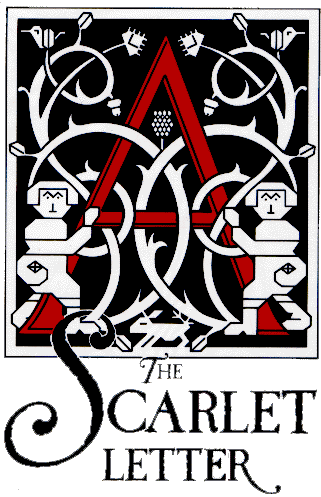Is Hester Prynne a Feminist?

November 10, 2015
Throughout Nathaniel Hawthorne’s renowned work, The Scarlet Letter, Hester Prynne struggles against an oppressive Puritanical society; it is this struggle that ultimately shapes her character. There is no doubt that Hester is a strong character, but is she a strong, feminine character? When Hester is faced with the multitude of conflicts, does she face them as an empowered individual? Or, does she allow Puritan ideals to stifle her strength? In short: Is Hester Prynne a feminist?
English teacher Amelia Garcia, a strong, inspiring woman herself, seems to be the most qualified scholar with whom to discuss this question. Before we can even begin discussing Hester Prynne, there must be a discussion of how feminism is understood in the world today.
To me, a feminist is someone (male or female) who recognizes the strength and capability of woman as equal to the strength and capabilities of men. Mrs. Garcia adds a very important element of this definition, specifying a feminist as someone who, “supports women in reaching their goals.”
So how does Hester Prynne compare to our definition of feminism? As I talked with Mrs. Garcia about the novel, a picture was painted of a character who is very frustrating in many ways. The reader first witnesses Hester submitting to the shame sentenced by the Puritans. She allows the scarlet letter to control her life. As the book progresses, however, Hawthorne reveals that the scarlet letter has ultimately strengthened Hester. Finally! Hester as a strong, empowered woman, right?
Unfortunately this is not quite the case, as Hester is described as losing her femininity in order to be strong. It is as if feminism is a dichotomy: strong or feminine, beautiful or intelligent, loving or courageous. In the example of Hester, Hawthorne suggests that women cannot be both empowered and feminine at the same time. How does this characterization comment on the question of Hester Prynne’s classification as a feminist?
Mrs. Garcia remarks on Hester’s back and forth teeter-totter of empowerment by characterizing Hester as someone who, “is on the road to empowerment and is very confident in that empowerment, but then she gets to a point where she stops herself.” And maybe that is the key to our question: confidence.
Hester is a woman who struggles with making a leap of faith in order to completely trust in her own strength and empowerment. This struggle with confidence is a struggle that has affected woman from Hester’s time and continues into modern times.
While Hester may not have fully embraced her strength during the novel, she was definitely on her way to doing so. In my opinion, all women are “women on our way,” and that in of itself, makes us feminists. In this way, Hester represents a genuine and relatable female experience. She embodies the internal struggle that women have dealt with for ages: the struggle of being confident in our own strength. Isn’t this the goal of every fictional character? To exemplify the human condition in a way that allows us to examine our own lives?
When asked what feminists today should learn from Hester Prynne, Mrs. Garcia replies, “Feminists today can learn this sense of identity, of claiming identity and not allowing others to define who you are. Sometimes I’m hard on Hester, but at the same time, I think she is someone who a society wanted to define a specific way and even though she may not always realize her strength, she can control her identity herself.”
So, maybe I have been asking the wrong question this entire time. The important question we should be asking is not whether Hester Prynne is a feminist, but instead: what we can take away from Hester as feminists of 2015 and how we can become more confident in our unique identities and strengths as women on our way.

Bunny • Oct 30, 2017 at 10:09 am
I totally agree, except for the part when she stays in Boston. I think that she is brave to face her mistakes but not let them define her.